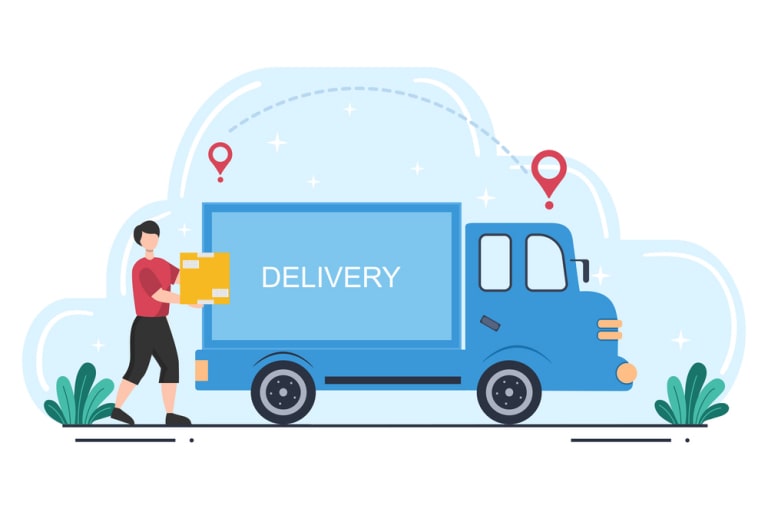The Ultimate Guide To Launching Your Own Delivery Business

Launching your own delivery business can be a rewarding venture, especially with the growing demand for such services in various sectors, from food to e-commerce. While it may seem straightforward, embarking on this entrepreneurial journey involves careful planning and understanding of the industry mechanics.
If you’re considering stepping into this dynamic field, knowledge about market needs, competition, and strategic positioning will be invaluable. Below, we examine the key steps to successfully launching and running a delivery business in today’s market.
Understanding the Delivery Business Landscape
The delivery industry has undergone a dramatic transformation with the advent of digital platforms and changing consumer behaviors. Knowing your target market and the current trends is crucial for carving out your niche. Research into delivery services, from on-demand food delivery to parcel and courier services, will reveal where opportunities for entry lie.
Competition is fierce in the delivery arena, as startups and established companies vie for market share. An analysis of competitors’ strengths and weaknesses will provide valuable insights into creating a unique selling proposition. Understanding logistical challenges and customer pain points can also help you tailor your services to better meet market demands.
Your choice of business model plays a critical role in shaping your delivery business. Decide whether to operate on a local or a wider scale, and consider the advantages of either partnering with existing establishments or going solo. This initial stage will set the tone for your delivery service and influence your strategy moving forward.
As with any sector, the delivery business is subject to economic fluctuations and regulatory changes. Staying abreast of any legislative developments affecting transportation and delivery services will help ensure your business remains compliant and prepared for any market shifts.
Crafting a Strategic Business Plan for Your Delivery Service
Before you hit the road, a well-crafted business plan lays the groundwork for your delivery service. It should outline your vision, objectives, and the steps required to reach them. This document will serve as a roadmap, guiding you through the establishment and growth phases, and as a persuasive tool when seeking funding.
Financial planning is at the core of your business plan. This includes forecasting startup costs for vehicles, technology, and insurance, as well as ongoing operational expenses. A realistic, detailed financial plan will be indispensable for maintaining long-term cash flow and profitability.
Operational logistics are the backbone of any delivery business. This involves route planning, delivery scheduling, and implementing a reliable tracking system. Efficiency here not only minimizes costs but also enhances customer satisfaction—an essential aspect of recurring business and press release examples.
Market analysis within your business plan should identify who your customers are, what they need, and how best to reach them. This will inform your pricing strategy, promotional efforts, and customer service policies, establishing a customer-centric business ethos from the outset.
Navigating Legal Requirements and Insurance for Delivery Businesses
Compliance with legal standards is non-negotiable in the delivery business. Licensing, permits, and regulations vary by location and the nature of the goods transported. Ensure you understand and comply with these requirements to avoid costly penalties and business disruptions.
Insurance is foundational to mitigating risks associated with delivery services. From vehicle insurance to goods-in-transit cover, selecting the right policies offers protection against accidents, theft, and other liabilities. Seeking professional advice can simplify the complex landscape of business insurance.
The employment or contract of drivers introduces further legal considerations. This includes background checks, driving license validations, and workers’ compensation. These measures safeguard both your staff and business reputation, promoting a safe and reliable service.
Data protection laws are critical if your delivery service incorporates online ordering or tracking. Ensuring that customers’ personal information is handled securely and in compliance with regulations such as the General Data Protection Regulation and California Consumer Privacy Act is paramount to maintaining trust and avoiding legal issues.
Leveraging Technology and Logistics for Delivery Business Success
Investment in technology can dramatically enhance the efficiency of a delivery business. Robust order management systems, GPS tracking technology, and mobile apps can streamline operations and improve customer experience. These systems should be scalable to adapt as your business grows.
Logistics is at the heart of delivery success. Optimizing routes, ensuring timely dispatches, and managing fleets effectively are all made simpler with the right software solutions. Collaboration with a reliable Diesel fuel supplier in Winnipeg ensures your fleet runs smoothly and cost-effectively.
Big data and analytics offer insights into customer behavior, supply chain efficiency, and growth opportunities. Harnessing this information enables informed decision-making and can differentiate your delivery service by providing personalized, improved customer service.
The rise of e-commerce and evolving consumer habits create promising conditions for new delivery businesses. By thoroughly understanding the industry, building a robust business and legal framework, marketing effectively, and leveraging technology, you can position your delivery service for long-term success. Overall, careful planning and adaptability will serve as your compass as you navigate the swiftly moving currents of the delivery business landscape.




